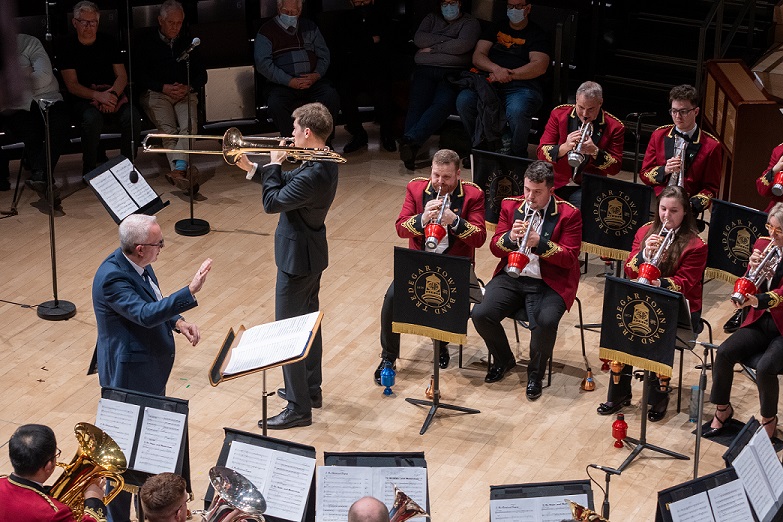

Peter Moore has long made superlatives redundant.
Here, his exploration of Simon Dobson’s deeply personal ‘Shift’ concerto was a forensic examination of the emotional trigger-points of a major crossroads in the Cornish composer’s life that laid the soul bare.
The troubling dualities and transference of frustration and confusion, solitude and longing, hope and momentum, were observed by the soloist in a form of musical psychiatry through an optic of consummate, compassionate artistry.
The troubling dualities and transference of frustration and confusion, solitude and longing, hope and momentum, were observed by the soloist in a form of musical psychiatry through an optic of consummate, compassionate artistry.
Tredegar played their part in full – presenting an equally informed supportive canvas; flexible as well as constrained, shaded in colour and texture.
Listeners were left spellbound in admiration; the opening vicious and questioning, the central section a paean of aching beauty, the short finale, full of optimism and carefree energy.
Focal point
It was the focal point of a hugely satisfying theme of ‘anniversaries’: Dobson’s 40th, the 70th of Judith Bingham and 150th of Ralph Vaughan Williams.
Tredegar had recently recorded RVW’s short fanfare ‘Flourish for Brass’, a new arrangement of ‘Rhosymedre’ (from Three Preludes founded on Welsh Hymn Tunes) and Philip Littlemore’s intriguing new performing editions of his bucolic ‘English Folk Song Suite’ (back in its brightly coloured original pitch), and masterful ‘Variations for Brass Band’.
Informed appreciation
Ian Porthouse’s informed appreciation of the scores was therefore obvious – spacious and refined, a warm, resonant tonality layered with subtly defined dynamic gradations.
Ian Porthouse’s informed appreciation of the scores was therefore obvious – spacious and refined, a warm, resonant tonality layered with subtly defined dynamic gradations.
The bold ‘Flourish’ declarations led into the sprightly ‘Folk Song Suite’ exuberance of ‘Seventeen Come Sunday’, which in turn gave way to a touching ‘My Bonny Boy’ and ‘Folk Songs from Somerset’ that bubbled like a joyful pint of Laurie Lee cider.
Contrast came the with nuanced cambers and flowing Methodist lines of ‘Rhosymedre’, before Judith Bingham’s ‘These are our Footsteps’ drew the listener into the atmospherics of 1st century Roman history; the episodes conceived from a 21st century viewpoint, the passing millennia losing nothing of its evocative power.
A sumptuous reading of ‘Variations for Brass Band’ brought the concert to a close; Philip Littlemore’s subtle shifts of emphasis and internal restructuring bringing a new sheen of resonance to the music (complete with celeste) – performed with admirable certainty and thoughtfulness by the conductor and band.
Iwan Fox









